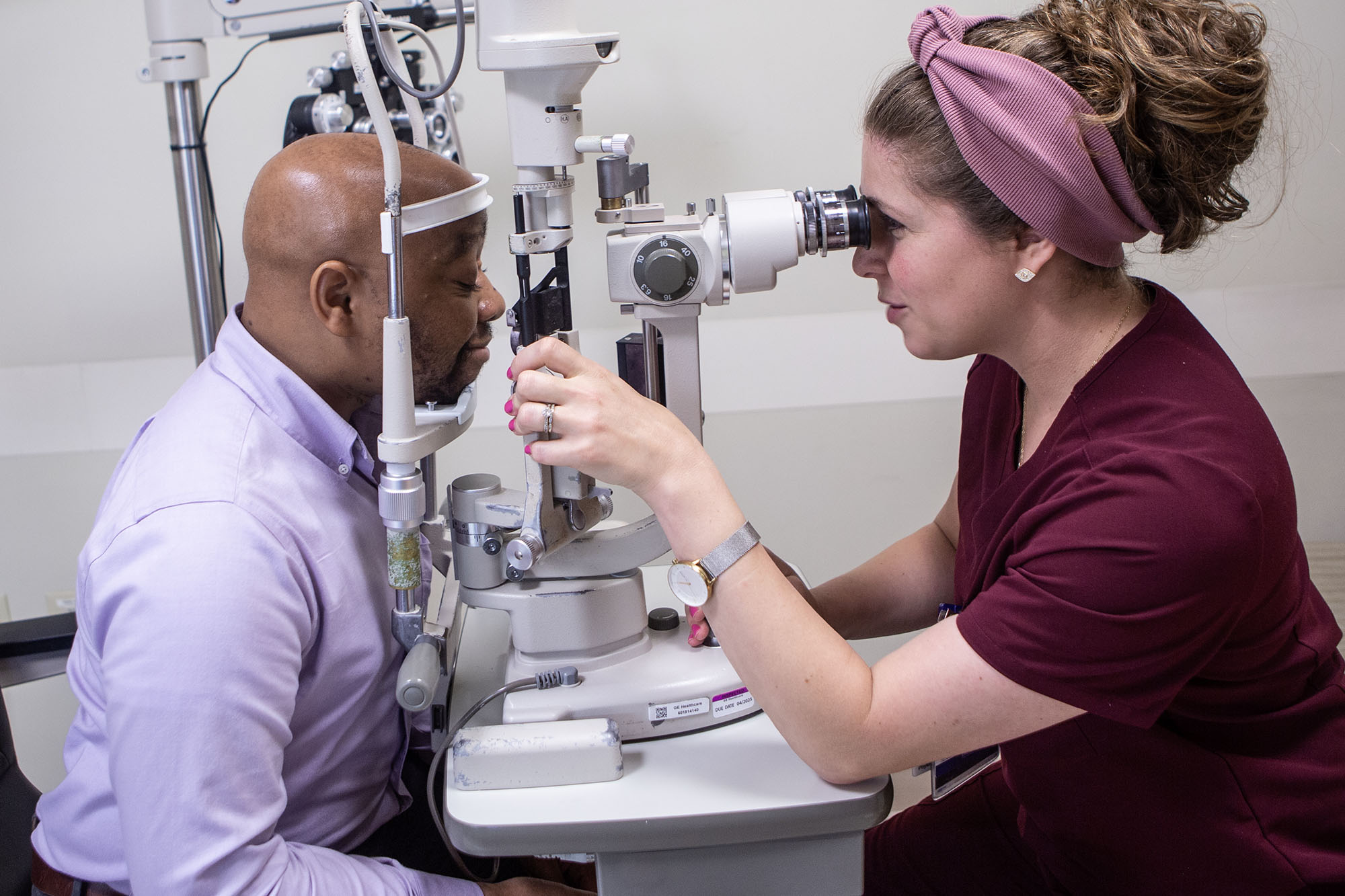The mission of the Emory Department of Ophthalmology is to train the next generation of glaucoma leaders by guiding fellows as they cultivate a fundamental understanding of this complex disease and its many forms, thereby helping them develop a clear and informed approach to its management. Program graduates are well prepared to pursue the career path of their choosing, whether in academics or private practice, and have historically excelled as community clinicians and surgeons as well as productive members of academic departments.
The six members of our glaucoma faculty offer varied opinions and treatment algorithms, allowing our fellows to assimilate multiple approaches to a given clinical or surgical problem as they refine their own unique methodology. Our faculty are well connected and respected members of the wider glaucoma community, both nationally and internationally, and are passionate about education and mentorship. Our success is measured by yours, and we support our fellows through every stage of their professional development.
Surgical exposure and high-volume primary surgeon experience
- In-office procedures: anterior chamber paracentesis and viscoelastic reformation, selective laser trabeculoplasty (SLT), argon and YAG laser peripheral iridotomy (LPI), YAG laser capsulotomy, trans-scleral diode laser cyclophotocoagulation (both traditional CPC and micropulse), argon laser suture lysis, argon laser iridoplasty, and laser cyclodialysis closure
- Traditional glaucoma filtering surgeries: trabeculectomy (both flap and tunnel techniques), Ex-Press mini glaucoma shunt, valved (Ahmed) and non-valved (Baerveldt, Molteno) aqueous tube shunts, trabeculectomy revision (both ab-externo and ab-interno approaches), aqueous tube shunt repositioning and revision, and drainage of persistent choroidal effusions
- Micro-invasive glaucoma surgery (MIGS): iStent, Hydrus, Kahook Dual Blade (KDB), OMNI ab-interno canaloplasty (ABiC), and gonioscopy-assisted transluminal trabeculotomy (GATT), with others under evaluation and consideration as they are developed and released
- Routine and complex anterior segment surgeries: standard phacoemulsification, complex phacoemulsification (anterior capsular staining, Malyugin ring, iris hooks, capsular hooks, capsular tension ring, capsular tension segment), goniosynechialysis, IOL repositioning and exchange, sulcus IOL fixation, scleral-fixated IOL (Yamane intrascleral haptic fixation and GoreTex suture fixation techniques), direct suture cyclopexy closure of cyclodialysis cleft, surgical repair of the iris using suture pupilloplasty and iridodialysis closure techniques, anterior vitrectomy via pars plana approach, and irido-zonulo-hyaloido-vitrectomy (IZHV) for the treatment of malignant glaucoma
Regularly scheduled learning and teaching opportunities:
- Quarterly glaucoma journal clubs with topics chosen by the fellows and dinner provided by the attendings
- Bimonthly surgical video conferences create a comfortable atmosphere in which to share surgical triumphs, struggles, and to discuss complex glaucoma and anterior segment techniques in a collaborative and relaxed learning environment
- Fellows attend and present at weekly Grand Rounds sessions and at professional meetings, including the American Glaucoma Society and the American Academy of Ophthalmology.
Responsibilities and service contributions:
- Fellows serve as junior attending members of the glaucoma service at Grady Memorial Hospital, supervising the residents as they care for diverse patient populations
- Fellows are assigned glaucoma and trauma call with faculty back-up, as well as rotating consult coverage
- Fellows participate in some form of research project over the course of the academic year
Apply for the glaucoma fellowship
Each year, the Selection Committee begins reviewing candidates in June, with August 31 being the final deadline for consideration. Select applicants will be contacted in September for a virtual interview later in the fall. The fellowship begins at Emory the following July.
Candidates should anticipate having their Georgia medical license prior to starting the fellowship. Where appropriate, applicants should familiarize themselves with the Requirements for Foreign Medical School Graduates
Interested applicants should complete the following steps in a timely manner:
- Register at SF Match, the residency and fellowship matching service
- Submit a formal application through the SF Match's Central Application System by August 31.
- Take note of the deadlines, fellowship openings, and other information at SF Match
- Email the following items directly to the Emory Eye Center fellowship coordinator, KimberLe' Parker-Taylor once their CAS application has been submitted:
- Current professional headshot
- Current mailing address and phone number
- Letter from the current department chair
- Letter from the current residency director
Ophthalmology (AUPO) fellowship compliance program, and meets or exceeds all guidelines
and standards set forth by the AUPO fellowship compliance committee.


